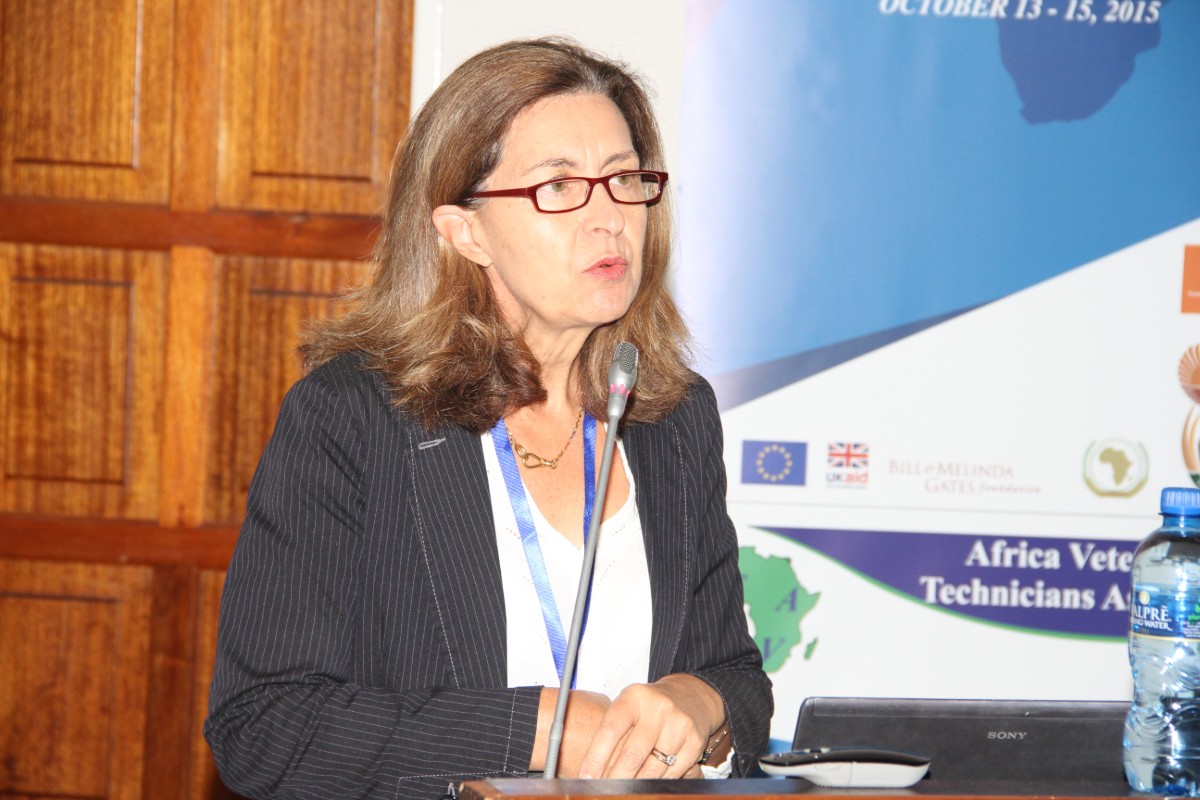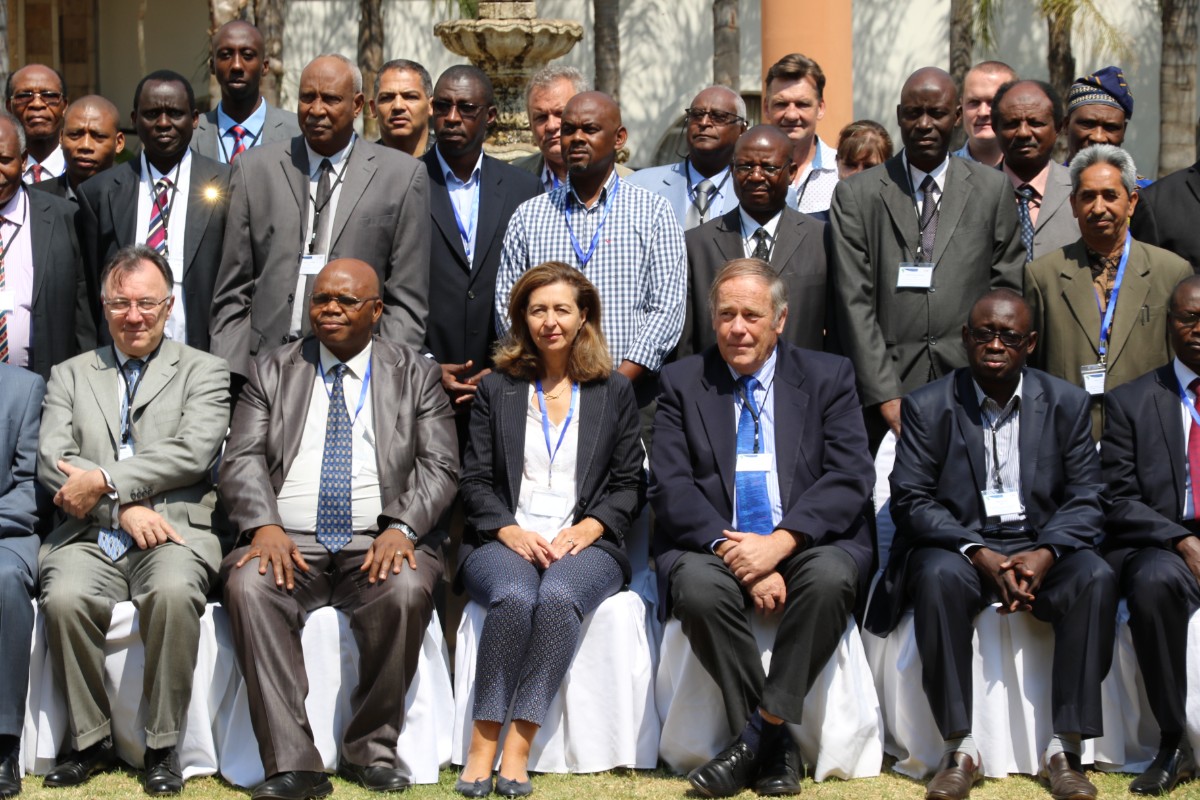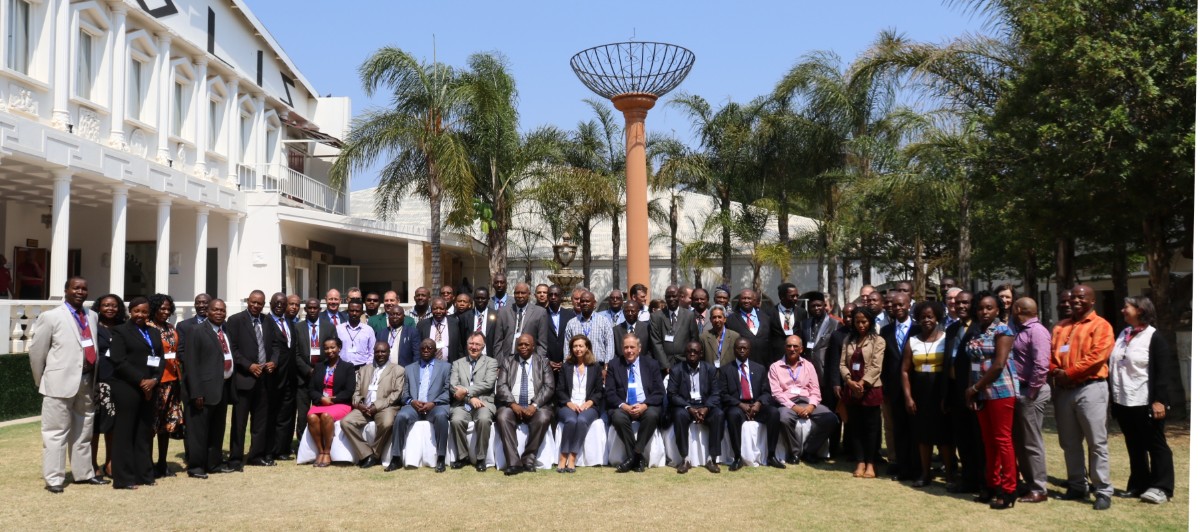
The inaugural continental conference for Veterinary Para-Professionals (VPP) took place in Pretoria, South Africa, from 13 to 15thOctober 2015. It was organised by the World Organisation for Animal Health (OIE) and the African Veterinary Technicians Association (AVTA), with the financial and technical support of the Global Alliance for Livestock Veterinary Medicines (GALVmed) and the South African Department of Agriculture, Forestry and Fisheries (DAFF) in a bid to improve the quality of the field work conducted in Africa by strengthening the linkages and collaboration between veterinarians and VPP.
The meeting benefited from the financial support of the European Commission through the Strengthening of Veterinary Services in Africa (VETGOV) project.
According to the OIE Terrestrial Code glossary, Veterinary Para-Professional (VPP) “means a person who, for the purposes of the Terrestrial Code, is authorised by the veterinary statutory body to carry out certain designated tasks (dependent upon the category of veterinary para-professional) in a territory, and delegated to them under the responsibility and direction of a veterinarian. The tasks for each category of veterinary para-professional should be defined by the veterinary statutory body depending on qualifications and training, and according to need”.
The national definition varies from country to country but may include animal health technologists, laboratory animal technologists, horse farriers, equine dental technicians, animal production officers, animal scientists, livestock officers, vaccinators, extension officers, nurses, artificial inseminators, meat inspectors, food inspectors, veterinary laboratory technicians and animal health technicians, all of whom may or may not be registered by the national Veterinary Council or Veterinary Board.
The conference brought together some 100 participants, including a selection of African representatives of the national associations / federations of VPP (many countries have several associations, for different VPP such as nurses, meat inspectors, laboratory technicians, field technicians, inseminators, etc.) as well as the representative of the veterinary authority (the Director of Veterinary Services) and the veterinary statutory body (Veterinary Council or Board).
Following three days of intense debates, the Conference participants resolved to support the veterinary para-professionals to establish independent national, regional and/or sector-wide associations, able and competent to represent the profession(s) in the Veterinary Statutory Body or Bodies; to convince National Veterinary Statutory Bodies to include veterinary para-professionals in their decision making bodies, beyond the mere registration or listing of these para-professionals; and to convince them to define conditions and admission criteria for continuing education and post-graduate education for veterinary para-professionals; and to take necessary steps for the enactment and enforcement of required legislation to that effect.
In turn, the OIE is tasked with developing minimum day-one competences for the various categories of para-professionals that exist, in scope and in level of qualification and to developing minimum core training curricula for the various categories of paraprofessionals that exist, in scope and in level of qualification, as well as to courage the participation of representatives of national, regional and continental associations of veterinary para-professionals to participate in the fourth OIE Global Conference on Veterinary Education, to be held in Thailand in June 2016.



